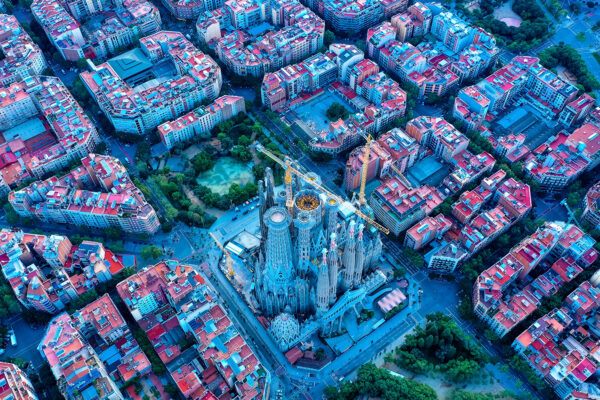
I haven’t blogged much recently. What little news there is other than the coronavirus outbreak seems rather less important. Since I’m by no means an expert on pandemics, I don’t have a lot to write.
I can tell you what’s happening here in Barcelona.
The city is in lockdown. We’re only allowed to leave our homes to do groceries, walk the dog and visit dependents. The beaches and parks are closed. Cultural and sports events have been canceled. Non-urgent medical appointments have been postponed. Supermarkets require the use of plastic gloves, which they hand out for free, and cashiers insist you take the receipt in case you are stopped by police and need to prove you only went out for food. (Something I haven’t seen happen.)
In addition to supermarkets, banks, pharmacies, pet and tobacco stores are allowed to open. So are newsstands, but the ones in my neighborhood have shuttered. Bars, cinemas and retailers are closed. So are tourist attractions, including the Sagrada Família and Casa Batlló. The latter has added a decent virtual tour to its website.
As recently as a week ago, the streets were full of life, with people shopping or having lunch or dinner outside in one of the city’s many cafés and restaurants. All that is gone. Some restaurants offer delivery and takeout. Most are closed. The mail still works. But the streets are deserted.
Public transport is running at reduced capacity. Ridership has fallen 85 percent on metros and trains and 90 percent on buses. The buses I’ve seen are either completely empty or carrying one or two people at most. We’re still allowed to take a taxi, but alone.
Earlier this week, people applauded health-care workers from their balconies at 10 in the evening. On Wednesday night, Catalans made noise again. This time in protest, because the king of Spain was giving a televised speech. So not everything has changed.
Economic impact
Because the worst of the outbreak has been in the Madrid area — more than half the infections in Spain have been in and around the capital — Catalan president Quim Torra, who himself has contracted coronavirus disease, has called for travel restrictions inside the country. This the central government refuses, but it has imposed external border controls. Only citizens and residents are allowed to enter and exit Spain anymore.
That is a huge blow to the tourism industry, which in previous years contributed 15 percent to the economy.
The Spanish government is putting together a rescue package of roughly the same size, €200 billion, for the entire economy. Some of the money will have to come from private sources.
Measures include emergency liquidity for businesses and the self-employed, lifting social security contributions for companies that do not lay off workers and delaying mortgage payments for homeowners who are out of work.
The Catalan regional government is providing additional relief to freelancers and has taken over private health facilities.
Worse to come
Speaking to an almost empty Congress on Wednesday, Prime Minister Pedro Sánchez warned that the virus, which has already infected more than 14,000 Spaniards and killed 638, will get worse. “The hardest part is yet to come,” he said.
The infection rate in Spain is rising faster than in Italy, which has lost almost 3,000 people to the disease.
Sánchez also predicted Spain could lose up to three months worth of economic output this year.
Regional elections in the Basque Country and Galicia, which were due on April 5, have been postponed. Catalonia was expected to hold elections as well after the ruling separatist parties fell out in January. No word on when, or if, those will take place.
